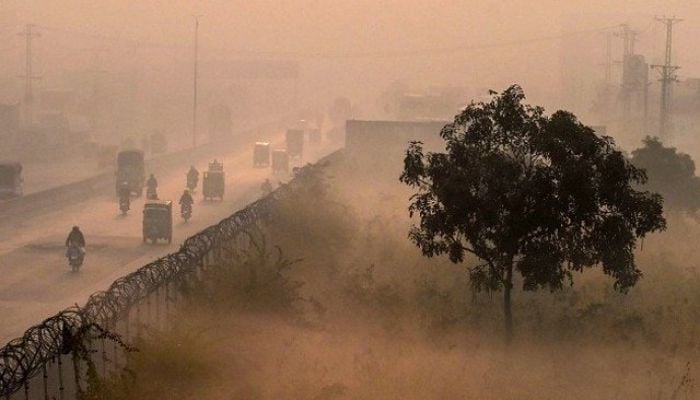[ad_1]
Scientists said Friday at the COP27 climate summit in Egypt that carbon dioxide emissions from fossil fuels, the main driver of climate change, are on track to rise 1% in 2022 to reach an all-time high.
Emissions from oil, fueled by an ongoing recovery in the aviation sector, are likely to rise more than 2% from a year ago, while emissions from coal — which some believe peaked in 2014 — will be even higher. New record.
“Oil is driven more by the recovery from COVID, and coal and gas is driven more by events in Ukraine,” said Glenn Peters, director of research at the CICERO Institute for Climate Research in Norway. France Press agency.
worldwide CO2 emissions From all sources – including deforestation and land use – it will reach 40.6 billion tons, just below the record high in 2019, the first peer-reviewed projections for 2022 show.
The data indicated that despite the wild cards of recovery from the pandemic and the energy crisis sparked by the war in Ukraine, the sharp increase in carbon pollution from the burning of oil, gas and coal is consistent with the underlying trends.
It’s very concerning, said Peters, a co-author of the study.
He noted that “emissions are now 5% higher than when the Paris Agreement was signed” in 2015.
“You have to ask: when will they come down?”
carbon budget
The new figures show how difficult it will be to cut emissions fast enough to meet the Paris target of capping global warming at 1.5°C above pre-industrial levels.
Heating beyond this limit, scientists warn, could lead to hazards dangerous Turning points in the climate system.
Warming of just 1.2°C so far has unleashed deadly and costly extreme weather events, from heatwaves and droughts to floods and tropical storms made even more devastating by rising seas.
To achieve the ambitious Paris target, global greenhouse emissions must fall by 45% by 2030, and fall to net zero by mid-century, with any remaining emissions offset by removing carbon dioxide from the atmosphere.
To be on track for a net-zero world, emissions must fall 7% annually over the next eight years.
To put that in perspective: In 2020, with much of the world’s economy shut down, emissions fell just 6%.
Over a longer period of time, the annual rise in carbon dioxide from fossil fuel use has slowed, on average, to 0.5% per year over the past decade after rising 3% per year from 2000 to 2010.
For a 50/50 chance of staying below 1.5°C, allowance for humanity’s emissions is 380 billion tons of carbon dioxide, according to the study in Earth System Science Data, written by more than 100 scientists.
On current emissions trends of 40 billion tons per year, this “carbon budget” will be used up in less than a decade.
For a two-thirds chance, the budget will shrink by a quarter and will be depleted in seven years.
“very disappointed”
In recent decades, scientists can usually draw a straight line between carbon dioxide trends and the economy of China, which was the world’s largest carbon emitter about 15 years ago.
However, in 2022, China’s carbon dioxide production is set to fall by about 1% for the year, which almost certainly reflects an economic slowdown linked to Beijing’s strict non-coronavirus policy.
Despite having to scramble for alternative sources of energy, including carbon-intensive coal, the EU is on track to see its emissions drop by about 0.8%.
US emissions are likely to rise by 1.5%, and Indian emissions by 6%.
The annual update also revealed that the ability of oceans, forests and soils to continue absorbing more than half of carbon dioxide emissions has slowed.
“These ‘basins’ are weaker than they would have been without the effects of climate change,” said co-author Corinne Le Querre, a professor at the University of East Anglia.
Scientists who were not involved in the findings said they were grim.
“The global carbon budget for 2022 is very disappointing,” said Mark Maslin, professor of climatology at University College London.
“In order to have any chance of staying below the agreed global warming target of 1.5°C, we need to make significant annual reductions in emissions – which there is no indication of that.”
[ad_2]
Source link

